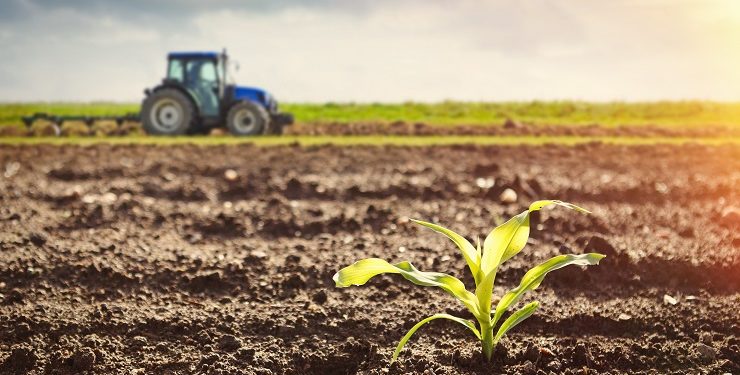Years later, when it was his turn to work for the farmers, he was subjected to the same treatment.
The 55-year-old is one of a few black farmers in the small town of Senekal that is at the centre of racial strife following the appearance at the Senekal Magistrate’s Court of Sekwetje Isaiah Mahlamba, 32, and Sekola Piet Matlaletsa, 44, on charges of killing farm manager Brendin Horner, 21, earlier this month.
Horner’s murder has triggered a confrontation between members of the EFF and minority rights group AfriForum and others who are arguing that white farmers are facing a “genocide” in South Africa.
Speaking to the Independent Media in the midst of the chaos, threats of violence, and confrontation between the “boere” and the “people”, Monaheng says he is not surprised by the turn of events, saying he believes it has long been brewing.
He said he gained experience from working on two different farms in four years before he decided to leave to follow his dream of building a small commercial farm in the heart of a town called Tambo in Matsieng Section.
“I recall how I used to tell the owner I once worked for to never swear at me like he did to the others because I knew I could not take it. When I left, things got really bad for those that remained. But they couldn’t do anything about it because they needed the money. I needed the money too but I refused to take the humiliation. So I left,” he said, adding he doesn’t believe working conditions for farm workers will get better any time soon.
But Monaheng’s vision, that is still in the making, is to represent the black population within the farming industry and to create equitable employment that will help alleviate the severe poverty that bedevils the area.
“Here, people find themselves in situations of either not being able to finish school due to financial constraints or, even if they do complete their education, they can’t find employment.
“This grim situation has created painful conditions that have forced people to continue working on farms – under unfavourable conditions.
“And even in the year 2020, people are still treated like slaves, are still beaten and underpaid.
“People are left with no choice but to continue because that is where our food comes from. There are so many people that have been forced to remain on farms, forsaking their dreams and taking after their own parents because their needs supersede choices. And that is what I didn’t want for my children and that is why I took the risk.”
Monaheng’s decision to take up farming was partly to liberate himself from abuse and oppression and to go the entrepreneurial route by growing his own crops and to start a family business for the future.
What started as a small spinach patch, has 14 years later, expanded to include poultry farming and sheep husbandry that has also gained him both popularity and respect within his small community.
Looking back at his decision to venture out on his own into the unknown, Monaheng recalls how that step was first met with scepticism by his peers who had become used to working for a “boss”. Although the beginning of his journey was shaky, he knew where his freedom was – in creating a legacy for his family for years to come.
“It started when I was motivated to approach the municipality about the land opposite my house that was full of dirt which was a combination of rubbish and other things that were dumped in that space. I realised that there wasn’t a serious plan for the land and after getting the go-ahead to use it, I worked the land for about two weeks cleaning it until I could plant my spinach.
“And when I started, everyone thought I was crazy,” he says, laughing.
“My sanity and motives were questioned just because it was unheard of to see someone step into what was seen as ‘white’ territory. Because in this area, all we’ve ever known is white farmers and black workers. So what was I doing tempting fate like that? Wanting to be an owner of a farm seemed crazy,” he laughs.
The bet on his future was made, it cost him money to hire municipality trucks, various sacrifices, and a plan; a plan to be recognised as one of Free State’s most established farmers, no matter what that looked like.
Challenges that he has faced on his farm hinge on the lack of basic service delivery in the entire Matwabeng area, and water disruptions that have become a norm in that small location.
“We would go for weeks without water and that would result in either my crops dying and/or animals being dehydrated. That is why I had to come up with various plans to supplement the water and keep my business going. Because the reality is that no one cares about us. We are our own saviours.”
Through his produce, coupled with the sale of all his cows, he was able to send two of his children to university, both of whom are qualified teachers.
“And because I believe in working for one’s money and not getting anything for free, I have used my business as a space that also helps others.
“Whether it is empowering someone by cleaning a certain portion of the land for R50 or helping with ploughing crops, I really wish to go to lengths where I can uplift this community that seems to have been forgotten by the very government that we vote for time and time again,” he laments.
Monaheng’s tenacity has inspired another small commercial farmer who is situated next door, 81-year-old Dibe Makate, who walked away from his farming job in 1994 and first lived in an informal settlement for years.
“It was only years later when I encountered Monaheng did my eyes open to the opportunity of making my own money, money that has been able to feed my family through the sale that I make from my crops.
“This venture has also liberated me. Working on the farms was never a comfortable thing. We just continued because we felt we didn’t have any choices.
“But Monaheng’s boldness opened my eyes and now we are able to sell the fruits of our labour, for the benefit of my family,” says Makate.










